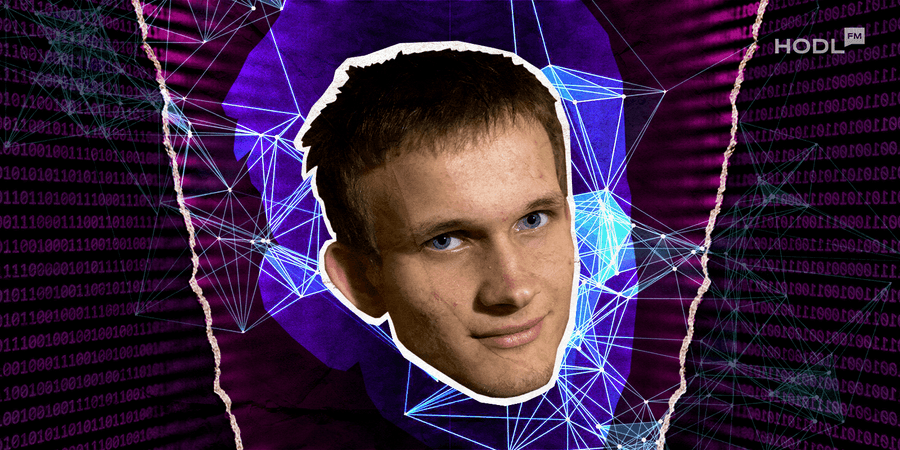Ethereum co-founder Vitalik Buterin has made a significant move to support the next generation of digital privacy tools, donating over $760,000 in Ether to two decentralized messaging platforms.
Encrypted messaging, like @signalapp, is critical for preserving our digital privacy. Two important next steps for the space are (i) permissionless account creation and (ii) metadata privacy.@session_app and @SimpleXChat are two messaging apps pushing these directions forward.…
— vitalik.eth (@VitalikButerin) November 26, 2025
Supporting Privacy Beyond Encryption
Buterin emphasized that encrypted messaging is crucial for preserving digital privacy but noted that the next frontier lies in removing metadata and enabling permissionless account creation. In his announcement, he identified Session and SimpleX Chat as projects pioneering these goals, contributing 128 ETH to each and encouraging users to explore the platforms.
Session is built to eliminate conventional identifiers such as phone numbers and relies on no central servers. SimpleX Chat similarly avoids phone numbers and does not assign users identifiable IDs, providing a strong layer of anonymity.
These approaches contrast with mainstream apps like WhatsApp and Telegram, which, despite encryption, still retain significant metadata.
Buterin, whose net worth is estimated at over $737 million in crypto holdings, has a history of funding initiatives aligned with Ethereum’s values, spanning both technology projects and charitable causes.
Privacy challenges in a regulated world
The timing of Buterin’s support comes as privacy in messaging continues to face regulatory pressures. Proposed measures in the European Union, such as the former Chat Control initiative, sought to require platforms to allow authorities to screen encrypted messages, sparking concerns about the erosion of privacy standards.
Alexander Linton, president of the Session Technology Foundation, told Cointelegraph that these regulatory and technical challenges make support from figures like Buterin especially meaningful.
“Private messaging is under pressure, but these challenges can be overcome. Vitalik understands the importance of decentralization in this fight,” he said, pointing how targeted support can help projects maintain focus amid uncertainty.
Technical hurdles in decentralized messaging
Buterin also pointed out that achieving strong metadata privacy requires addressing technical complexities, particularly in decentralized networks. Providing multi-device support while maintaining privacy, and resisting attacks that exploit multiple fake identities (known as Sybil attacks), are ongoing challenges.
“Decentralization makes strong metadata privacy possible, but it’s difficult to implement while maintaining a smooth user experience,” Buterin explained.
Sybil attacks, where a malicious actor creates multiple pseudonymous accounts or nodes to manipulate a network, pose a specific risk in peer-to-peer systems. Addressing such threats without compromising user anonymity remains a priority for privacy-focused messaging platforms.
“Solutions need careful design to balance security, usability, and network integrity.”
Layer-2 privacy solutions on Ethereum
Buterin’s contributions intersect with broader privacy infrastructure developments on Ethereum. Projects like Aztec Network’s Ignition Chain and the Ethereum Foundation’s Kohaku framework offer layer-2 solutions that enable private transactions through zero-knowledge proofs. These tools are part of Ethereum’s evolution following the proof-of-stake transition in 2022 and the Fusaka upgrade in November 2025, which improved economic alignment and made privacy-enabled operations more feasible.
Privacy innovation extends beyond messaging apps. AlphaTON Capital recently invested $82.5 million in GPU infrastructure for Telegram’s Cocoon AI, a project focused on decentralized, privacy-preserving AI computation.
By enabling secure, distributed processing, this initiative aligns with Buterin’s vision of democratizing access to secure technology.
Raising awareness for global privacy
Chris McCabe, co-founder of Session, emphasized the importance of education in addition to technical development.
“Many people don’t realize what happens to their data behind the scenes. Platforms like Session show that privacy can exist without compromise,” he said.
McCabe described the project as an opportunity to demonstrate that digital communication can be both secure and autonomous.
He added that a critical next step is fostering global awareness around trustless, decentralized messaging. By showing that privacy is not just a technical feature but a fundamental right, developers can empower users to communicate freely and securely without being treated as products themselves.
A strategic shift in the crypto space
Buterin’s donations also signal a broader strategic pivot for blockchain applications, aligning with Ethereum’s roadmap toward integrating privacy features at both the protocol and application layers. As decentralized communication and zero-knowledge technologies gain traction, the market for privacy-centric messaging is poised for substantial growth.
Analysts estimate the global blockchain messaging sector could expand from $65.76 billion in 2024 to over $1.2 trillion by 2032, reflecting a growing demand for secure, decentralized platforms.
Buterin’s support comes as privacy is becoming a central focus across blockchain networks, described as a “blockchain hygiene” shift, where privacy is integrated into both protocols and applications rather than treated as optional. This change reflects a growing recognition that secure, decentralized systems are essential for protecting data, maintaining trust, and allowing users to communicate, transact, and interact freely.

Disclaimer: All materials on this site are for informational purposes only. None of the material should be interpreted as investment advice. Please note that despite the nature of much of the material created and hosted on this website, HODL FM is not a financial reference resource, and the opinions of authors and other contributors are their own and should not be taken as financial advice. If you require advice. HODL FM strongly recommends contacting a qualified industry professional.




